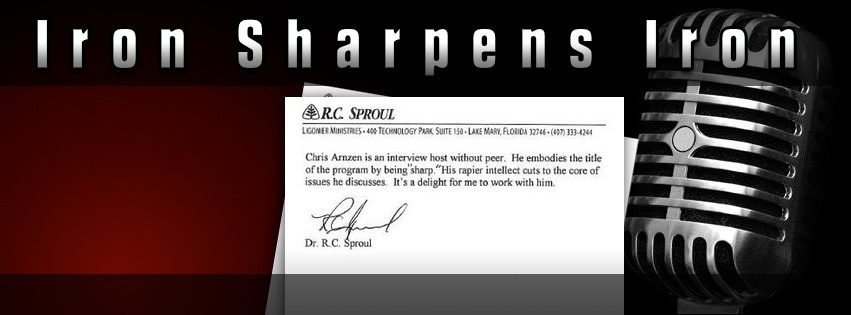




 |
|||||
 |
THE CHIEF END OF MAN: An Exposition of the First Answer of the Shorter Catechism
John Hall with Introduction by B.B. Warfield![]()
"Man's chief end is to glorify God, and to enjoy him for ever." This uncovered treasure is intended for all who desire to teach or to learn the purpose for which we were created. John Hall (1806-1894) is best known for his long-term friendship with J.W. Alexander, that later resulted in his two volume work which included the 800 letters he received from Alexander over their 40 year relationship.![]()
This little gem is full of instruction on the reason we are here and the way that we can live to the glory of God and the enjoyment of God. Parents and children, teachers and pupils, pastors and congregation alike will benefit from this wonderful book.![]()
An Introductory article by Benjamin Warfield adds to the value of this work.![]()
THE FOLLOWING ILLUSTRATIONS ARE DRAWN FROM 'THE SHORTER CATECHISM ILLUSTRATED' BY JOHN WHITECROSS (which is also published by Solid Ground)![]()
Lady Glenorchy, in her diary, relates how she was seized with a fever which threatened her life, 'during the course of which,' she says, 'the first question of the Assembly's Catechism was brought to my mind—"What is the chief end of man?" as if some one had asked it. When I considered the answer to it—"To glorify God, and to enjoy Him for ever"—I was struck with shame and confusion. I found I had never sought to glorify God in my life, nor had I any idea of what was meant by enjoying Him for ever. Death and judgment were set before me; my past sins came to my remembrance; I saw no way to escape the punishment due unto them, nor had I the least glimmering hope of obtaining the pardon of them through the righteousness of another.' From this unhappy state she was shortly after delivered, by believing on the Lord Jesus as the only Savior of the guilty.![]()
Such was James Hervey's strict piety, that he suffered no moment to go unimproved. When he was called down to tea, he used to bring his Hebrew Bible or Greek Testament with him; and would either speak upon one verse or upon several verses, as occasion offered. 'This,' says William Romaine, 'was generally an improving season. The glory of God is very seldom promoted at the tea-table; but it was at Mr Hervey's. Drinking tea with him, was like being at an ordinance; for it was sanctified by the Word of God, and prayer.'![]()
An eminent minister, after having been silent in company for a considerable time, on being asked the reason, signified that the powers of his mind had been solemnly absorbed with the thought of eternal happiness. 'Oh, my friends,' said he, with an energy that surprised all present, 'consider what it is to be for ever with the Lord-for ever, for ever, for ever.'![]()
A French officer, who was a prisoner upon his parole at Reading, met with a Bible, read it, and was so struck with its contents, that he was convinced of the folly of skeptical principles, and of the truth of Christianity, and so resolved to become a Protestant. When his gay associates rallied him for taking so serious a turn, he said in his vindication, 'I have done no more than my old school-fellow Bernadotte, who has become a Lutheran.' 'Yes, but he became so,' said his associates, 'to obtain a crown.' 'My motive,' said the Christian officer, 'is the same; we only differ as to the place. The object of Bernadotte is to obtain a crown in Sweden, mine is to obtain a crown in heaven.'![]()
Mr Robinson, a member of the presbytery of New Brunswick, was the son of a wealthy Quaker in England. Being permitted to pay a visit to an aunt in London, from whom he had considerable expectations, and becoming very fond of the dissipation of the town, he incurred debt, which so involved him, that he determined to quit his native country, and seek his fortune in America. Soon after his arrival, he had recourse, for subsistence, to teaching in a school in New Jersey. After he had been for some time engaged in this business, without any practical sense of religion, he was riding at a late hour one evening, when the moon and stars shone with unusual brightness. while he was meditating on the beauty and grandeur of the scene, and was saying to himself 'how transcendentally glorious must be the Author of all this beauty and grandeur I' the thought struck him with the suddenness and force of lightning—'But what do I know of this God? Have I ever sought His favor, or made Him my friend?' This happy impression, which proved, by its permanency and effects, to have come from the best of all sources, never left him until he took refuge in Christ, as the hope and life of his soul.![]()
Thomas Carlyle, in speaking against modern materialism in 1876, made this confession: "The older I grow, and I am now upon the brink of eternity, the more comes back to me the first sentence of the Catechism which I learned when a child, and the fuller and deeper its meaning becomes, ‘What is the chief end of man? To glorify God, and to enjoy Him for ever.'" And Dr. Binnie says: "Of the numerous excellencies that have endeared the Westminster Shorter Catechism to so many churches on both sides of the Atlantic, I am disposed to reckon this among the greatest, that it opens with such a solemn announcement of the nobility of human nature. I know no other Catechism that opens so grandly."![]()
Order with A DOZEN REFORMED CLASSICS FOR 2010![]()
$4-6 Book![]()
$5.00 Sale![]()
SHC3 c50 JH3![]()
![]() SGCB Price: $6.50 (list price $13.00)
SGCB Price: $6.50 (list price $13.00)![]()
ORDER ALONG WITH THE COMPANION VOLUME 'SCRIPTURE: THE ONLY RULE OF FAITH' BY HALL![]() SGCB Price: $12.95 (list price $26.00)
SGCB Price: $12.95 (list price $26.00)
OVER 50% DISCOUNT ON THE TWO VOLUMES![]()
